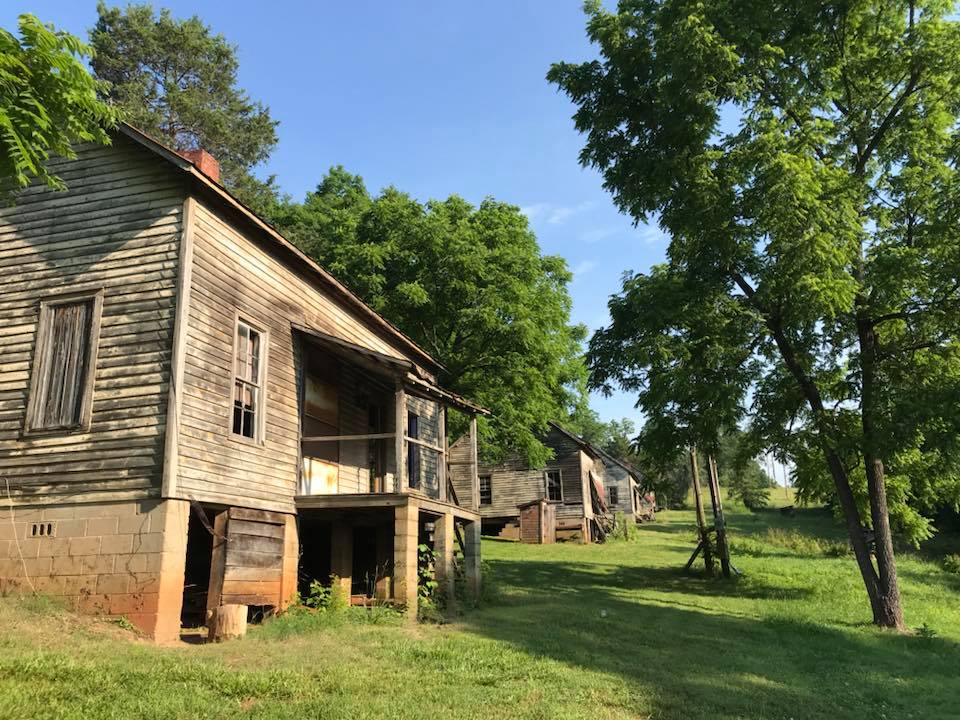Entertainment
District 12 of ‘The Hunger Games’ is now a historic place

The Henry River Mill Village, which served as the home of the three main characters from the original “The Hunger Games,” was named a historic place last month and announced by state officials earlier this week. (File Photo: Henry River Mill Village/Facebook)
RALEIGH, N.C. — What would the folks in the Capitol think? District 12 is now on the National Register of Historic Places.
The Henry River Mill Village, which served as the home of the three main characters from the original “The Hunger Games,” was named a historic place last month and announced by state officials earlier this week. It’s a designation that the new owners sought for the 72-acre (29-hectare) property because they “wanted to be the ones who got this property the recognition it deserves,” said Calvin Reyes, who bought the village in 2017 with his mother and stepfather.
When “The Hunger Games” was filmed in North Carolina in 2011, the mill village served as the home of Katniss, Peeta and Gale. But when Reyes talks about the proper recognition, he’s not referring merely to the filming of a box office smash.
“People come for ‘The Hunger Games,’ but they stay for the history,” Reyes said in a phone interview Thursday.
That history began about 1905 when the Henry River Manufacturing Co. established the mill in Hildebran in western North Carolina, about 70 miles (112 km) east of Asheville. The mill, which closed in 1970, burned down in 1977. It now includes a two-story company store and about 20 wood-frame textile workers’ homes.
The historic places nomination form says “the abandoned site took on the appearance of a ghost town” in the two decades after the mill burned, with 14 houses lost to decay and the boarding house demolished.
Despite the decay, the mill village “is a distinguished collection of unaltered mill housing in a planned rural village associated with North Carolina’s important textile industry in the early twentieth century,” the form says.
Reyes and his family were looking for property where they could build homes for their extended family when they found the mill village. The front door of the brick building that once was the company store and served as Mellark Bakery in the movie was screwed shut with a piece of plywood, and the inside looked like an episode of “Hoarders,” Reyes said.
Still, the three of them were charmed. They toured the property one afternoon and had it under contract the next day, paying $360,000 — a bargain considering the previous owner once was asking $1.4 million. That owner, Wade Shepherd, died in 2015, two years before the village sold.
“We knew from the beginning that we wanted to save these houses,” Reyes said. “We’re not preservationists or developers. But it spoke to us, and it was something we wanted to do.”
Shepherd, had complained about visitors and vandals even before “The Hunger Games” opened. Now the property is protected by cameras, lights and tours that take place five days a week. In addition, a “Hunger Games” tour group brings visitors on weekends. Since some people believe the property is haunted, paranormal tours also are available.
The National Park Service manages the historic places register, which doesn’t limit what an owner can do with their property. However, the designation may make property owners eligible for preservation funds and federal historic tax credits.
Author Suzanne Collins announced earlier this week that she’s releasing a prequel to her trilogy about a post-apocalyptic world. It’s set for release next year. That can only fuel interest in all things about Panem.
Reyes and the Namours plan to eventually restore the property, starting with a museum and gift shop, then maybe a house or two renovated for overnight stays. They hope to open a restaurant as well. They’ve set up the Henry River Preservation Fund that takes the money from the tours, which cost $15 with a guide and $10 unguided.
“We’re making sure that … this place (visitors) think of District 12, they know is a place where multiple generations grew up,” Reyes said. “A lot of people in North Carolina can trace their lineage to these mill villages that were all over the state.
“To me, the South is this, the story and the culture and where they came from. It’s a great story.”





















